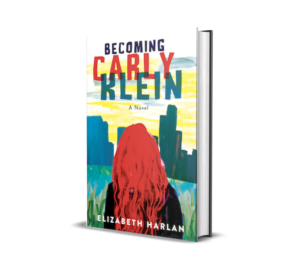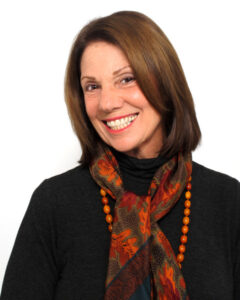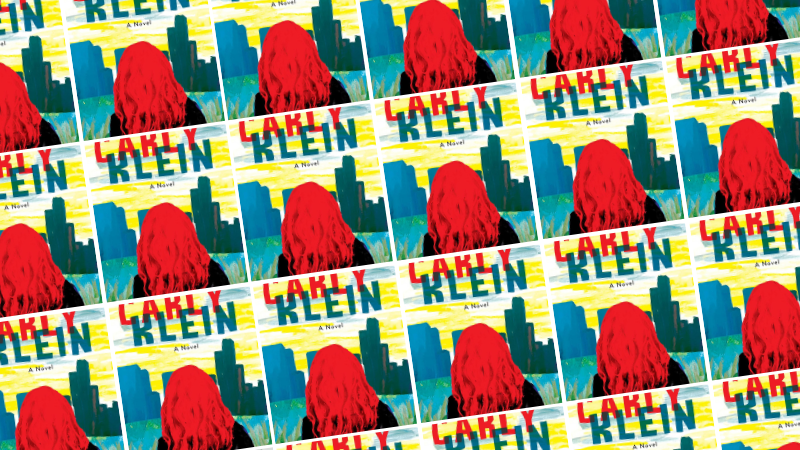 FLANDERS, New York — An unflinching exploration of growing up in a dismissive family and navigating a world that often feels misaligned, “Becoming Carly Klein” (SparkPress) by Elizabeth Harlan is a raw and compelling coming-of-age story about personal identity and human connection.
FLANDERS, New York — An unflinching exploration of growing up in a dismissive family and navigating a world that often feels misaligned, “Becoming Carly Klein” (SparkPress) by Elizabeth Harlan is a raw and compelling coming-of-age story about personal identity and human connection.
Neglected by self-absorbed parents who divorce when she’s 16, Carly leans on her best friend Lauren for solace. But when Lauren moves away, Carly is left adrift and becomes fixated on Daniel, a blind Columbia student and her therapist mother’s patient. Desperate for connection and to start up a relationship, she pretends to be a Barnard College student. What begins as a thrilling escape spirals into first love, deception and self-discovery as Carly grapples with the fallout from her choices. The novel takes readers on an emotional journey through family dysfunction and teen alienation that leads to the discovery of strength and resilience in unexpected places.
Flawed but fiercely determined, Carly makes bold — and often questionable — choices in her quest for connection. Perfect for fans of contemporary coming-of-age fiction, this novel is for anyone who has ever wrestled with feelings of alienation, struggled to find their place, or made mistakes in pursuit of love and belonging. With its resonant and realistic presentation of human psychology and personal relationships, “Becoming Carly Klein” is a story that will stay with readers long after the final page.
“If Holden Caulfield had a great-grandchild, it might be Carly Klein. J.D. Salinger used Holden as narrator to animate his novel; Elizabeth Harlan uses her powers of vivid observation. This will be a riveting read for many teenagers — and a meaningful cautionary tale for their parents.”
— Glenn Kramon, former assistant managing editor, The New York Times
“Becoming Carly Klein”
Elizabeth Harlan | Sept. 17, 2024 | SparkPress | Young Adult
Paperback, 9781684632664, $17.99
Praise for “Becoming Carly Klein” and Elizabeth Harlan
“An engaging tale about family, maturation, and love.” — Kirkus Reviews
“With sparkling prose and witty dialogue, Harlan captures the electric energy and tension of a teen awkwardly keeping secrets.” — BookLife
“A fearless exploration of how stepping in the wrong direction can help us step into ourselves.
Perceptive and engrossing, this coming-of-age story is an anthem for an under-parented generation, and a reminder that growing up can happen at any age … in all its funny, heartbreaking and messy glory!
A deeply satisfying read and one not to miss.”
— Mary Pascual, author of “The Byways” and “Walk the Web Lightly”
“As much as her plot and characters, it’s Elizabeth Harlan’s spare, elegant way with words that gives Carly’s coming of age story its power to engage a reader of any age, gender, or station.”
— Brooke Kroeger, author of “Undaunted: How Women Changed American Journalism”
“Catch the vibe of 1980s NYC — ambitious, gritty, stark, and real — in this utterly charming coming-of-age novel with a cast of memorably flawed and deeply human characters.”
— Melissa Walker, author of “Small Town Sinners” and “Unbreak My Heart”
About the Author
 Elizabeth Harlan’s journey as an author is deeply rooted in the vibrant tapestry of New York City, where she spent her formative years and where Carly’s captivating story unfolds. A versatile writer, Harlan has crafted compelling narratives spanning young adult novels to probing literary biography tailored for adult readers. Her writing openly addresses themes that she has not only defended but celebrated as an integral and beautiful part of life.
Elizabeth Harlan’s journey as an author is deeply rooted in the vibrant tapestry of New York City, where she spent her formative years and where Carly’s captivating story unfolds. A versatile writer, Harlan has crafted compelling narratives spanning young adult novels to probing literary biography tailored for adult readers. Her writing openly addresses themes that she has not only defended but celebrated as an integral and beautiful part of life.
At the heart of her work lies the poignant exploration of mother-daughter dynamics. Having mothered two children and grandmothered four grandchildren, despite the passage of time and the roles she has embraced, Harlan’s soul remains intertwined with young girls navigating the labyrinth of adolescence and struggling to grow out from under the oppressive yolk of mismothering.
Residing on the picturesque East End of Long Island and a bridgeless barrier island off Florida’s Gulf coast, Harlan draws inspiration from the diverse landscapes that surround her, infusing her prose with an evocative sense of place and emotion. Her stories resonate not only with authenticity but also with a profound understanding of the human experience, inviting readers to embark on transformative journeys of self-discovery and connection. For more information, visit her website: elizabethharlan.com.
Follow Elizabeth Harlan on social media
Facebook: Elizabeth Harlan Author | Instagram: @elizabethharlan | TikTok: @ellizabethharlan
Coverage for “Becoming Carly Klein”
- An interview with author Elizabeth Harlan and Waking Writer
- Book Reader Magazine’s featured author
- Reading list for Shepherd on the best books about young girls prevailing against adversity
- An interview with YA Book Central on the inspiration behind writing the novel
- Fresh Fiction interview: What if 15-year-old Carly Klein could become a different person?
In an interview, Elizabeth Harlan can discuss:
- Carly’s decision to masquerade as a college student and the ethical gray areas surrounding her choices, and how this ties into modern-day online personas and the allure of creating an alternate self
- The universal themes of self-reinvention and belonging — especially during adolescence — and how Carly’s experience of crafting a false identity resonates with anyone who has ever felt like they don’t fit in
- How mistakes are transformative and show that personal growth often comes through trial, error and reflection
- How parental neglect shapes teen decision-making and how Carly’s sense of abandonment fuels her risky decisions
- The psychological complexities of feeling unseen by those closest to you, leading to the need for external validation
- The “emotional crime” Carly commits in infiltrating Daniel’s world and how deception is not a villainous act but rather a coping mechanism and a path to self-realization
- How the book is a springboard for conversations about boundaries in relationships
- How the novel is a deeply human story, offering something for everyone — from young adults to seasoned readers
An interview with Elizabeth Harlan
1. “Becoming Carly Klein” has been in the works for decades — can you tell us a bit about that?
This novel began as a series of autobiographically linked short stories that I submitted for my Columbia Master of Fine Arts in fiction. It morphed into “Becoming Carly Klein” during the COVID-19 pandemic when I was sheltering on a little barrier island off Florida’s southwest coast. With little to do and nowhere to go, I pulled my Columbia writing program thesis out of a drawer and reimagined it as the novel it became. When I was a teenager with problems of my own, I was seen by a therapist who worked out of her apartment and whose young daughter would sometimes be hanging out in the hall by the elevator when I arrived for a session. I always wondered what this young person thought about her mother’s patients, and this inspired the central plot twist in “Becoming Carly Klein.”
2. You previously wrote a biography on French novelist George Sand. How did writing nonfiction differ from your experience writing fiction?
The most marked difference would be controlling for the data that’s involved in nonfiction. Creating a story, be it fiction or nonfiction, is not that different a process. As I look back, I believe my adult biography of the French 19th-century woman author, George Sand, is very much on a continuum with my YA novels that feature teen protagonists. It’s Sand’s complicated development as a young girl growing up and her subsequently troubled relationship with her own daughter, Solange, that captured my imagination and became the fulcrum of my focus. Be it fiction or nonfiction, I’ve woven the thematic thread of girls coming of age and mother/daughter relations into the warp and weft of my writing.
3. You’ve also written two other YA novels, “Footfalls” and “Watershed.” What is it about YA that feels particularly compelling to you as a writer?
I’ve gravitated to YA over the course of my 40 years since my first YA novel, “Footfalls,” was published. There’s something about writing in the voice of an adolescent that frees me up to describe experiences and to express feelings that connect me still and always with my impressionable and formative teenage years.
4. Are there certain aspects of YA writing you find more challenging? Certain things you find more enjoyable?
For me, as for many girls and boys coming of age, adolescence was an especially emotionally intense time of life. My impressions of people, places, events and relationships that I developed in those years have remained present and vivid in my imagination. When I write through the lens of a teen protagonist, I feel deeply connected to what I felt and experienced as a young person growing up and seeing the world with fresh, unjaded eyes. Maybe it’s simply that what stirred me then stirs me again as I give “voice” to my young characters, but whatever the reason, they speak to me with all their heart and I hear them loud and clear.
5. What kind of research did you do to write accurate representations of characters that are mental health professionals, blind, pregnant, etc.?
You could say that my research consists of my life and my experience living. In terms of representing a psychiatrist, a blind man, a pregnant teen, or a gay relationship between a father and his boyfriend, I rely on my protagonist, Carly’s point of view, so these portrayals are “true” to the way Carly perceives these characters.

A former award-winning journalist with national exposure, Marissa now oversees the day-to-day operation of the Books Forward author branding and book marketing firm, along with our indie publishing support sister company Books Fluent.
Born and bred in Louisiana, currently living in New Orleans, she has lived and developed a strong base for our company and authors in Chicago and Nashville. Her journalism work has appeared in USA Today, National Geographic and other major publications. She is now interviewed by media on best practices for book marketing.


